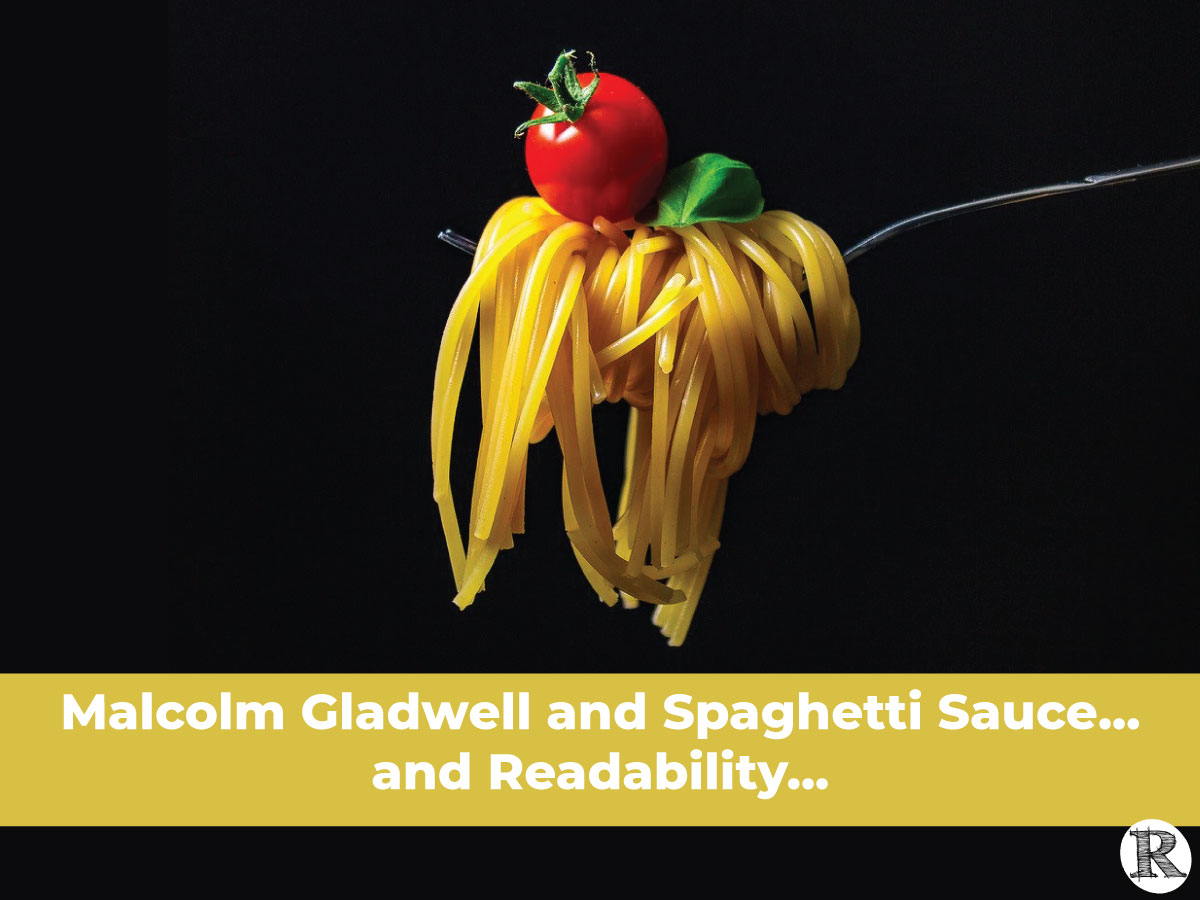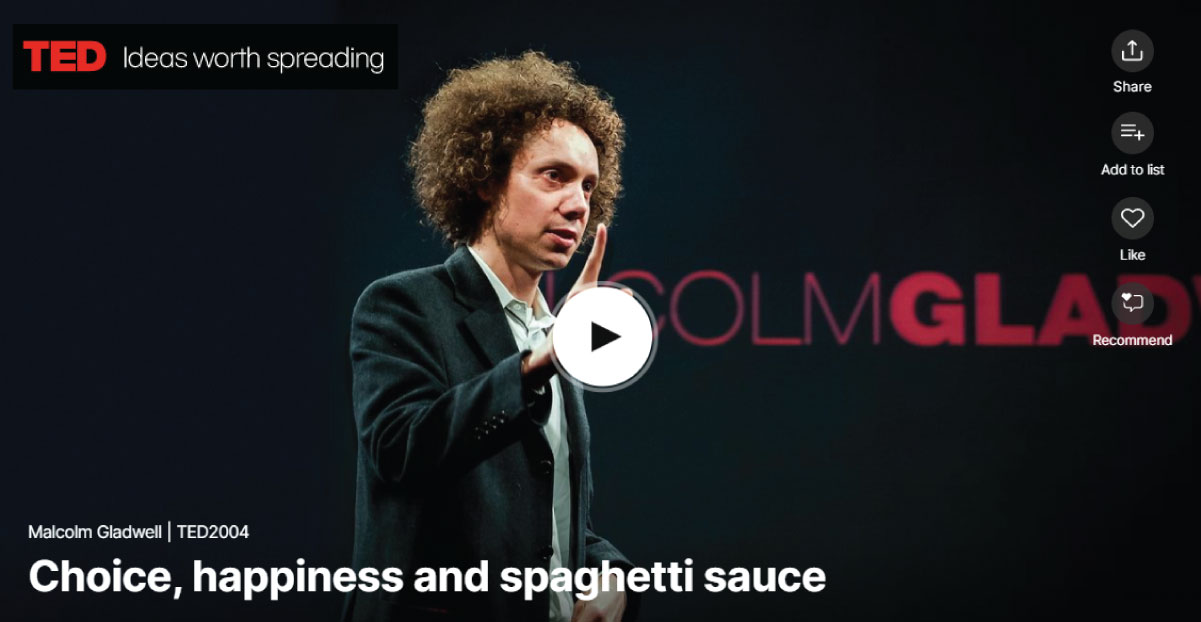What does Spaghetti Sauce have to do with Readability?
On National Spaghetti Day (Jan 4), we remember best-selling author Malcolm Gladwell’s TED talk, “Choice, Happiness, and Spaghetti Sauce.” Malcolm covers the food industry’s pursuit of the perfect spaghetti sauce—and makes a larger argument about the nature of choice.
Gladwell explains that Howard Moskowitz “has done as much to make Americans happy as perhaps anyone over the last 20 years.” Moskowitz is best known for his work with tomato sauce, or what Americans call spaghetti sauce.
A food consultant and psychophysicist, Moskowitz pioneered the idea of “Intermarket variability” — creating many different types of a product to appeal to as many different tastes as possible. He had a great respect for human variation. While this may seem trivial, it has actually transformed the food industry. People who were in the spaghetti business previously thought there was such a thing as the perfect spaghetti sauce. According to Gladwell, Moskowitz was the one who disabused them of that.
Moskowitz, Gladwell says, believed a company producing spaghetti sauce should be trying to understand all the different dimensions of human taste and catering to them.
“At the end of that process, after doing it for months and months, he had a mountain of data about how the American people feel about spaghetti sauce. And then he analyzed the data. Did he look for the most popular variety of spaghetti sauce? No! Howard doesn’t believe that there is such a thing. Instead, he looked at the data, and he said, let’s see if we can group all these different data points into clusters. Let’s see if they congregate around certain ideas. And sure enough, if you sit down, and you analyze all this data on spaghetti sauce, you realize that all Americans fall into one of three groups. There are people who like their spaghetti sauce plain; there are people who like their spaghetti sauce spicy, and there are people who like it extra chunky.
“…What is the great revolution in science of the last 10, 15 years? It is the movement from the search for universals to the understanding of variability.”
From Universals to Variability for Reading
Just as there is no perfect spaghetti sauce, Readability Matters reminds everyone that there is also no perfect font or reading format; personalization is required to make you the best reader you can be.
ABOUT MALCOLM GLADWELL: Malcolm Gladwell is the author of five New York Times bestsellers — The Tipping Point, Blink, Outliers, What the Dog Saw, and David and Goliath. He is also the co-founder of Pushkin Industries, an audio content company that produces the podcasts Revisionist History, which reconsiders things both overlooked and misunderstood, and Broken Record, where he, Rick Rubin, and Bruce Headlam interview musicians across a wide range of genres. Gladwell has been included in the TIME 100 Most Influential People list and touted as one of Foreign Policy’s Top Global Thinkers.





